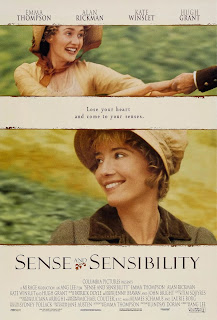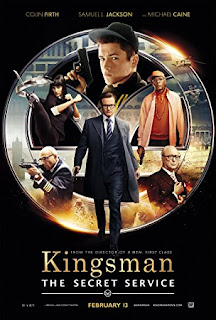End Of The Week Shorts #47
Today's shorts: Gol Maal (1979), Sense and Sensibility (1995), Midnight Cowboy (1969), Brother (1997), Do The Right Thing (1989), Mirror (1975), Kingsman: The Secret Service (2014), Bajrangi Bhaijaan (2015)
Gol Maal is an absurd comedy that, as its title suggests, is about Mayhem. However, there is a little more beneath this film than some nutty slapstick and insane coincidence.
Exploring what you may call the duality of self, Gol Maal sees numerous characters pretend to be two people, not by inventing a new person, but by splitting their true self into two different people. A playful sports-loving musician who has studied hard for an accounting degree then has to sell himself as just dedicated to work to his boss before having to pretend the other half of him is just a twin. This care-free twin falls in love with the boss' daughter. The commentary here is quite clear: traditional values do not have to die for the young to be free, and nor should older generations try to decimate youthfulness. The worthwhile youth are not a projection of an elder's desire, but a mediation between the past and the future, the old and the new. And so, maybe there is a lesson that tradition and the elders can learn from them.
Love sucks, love hurts... except sometimes it doesn't. And maybe that's something worth suffering for.
It is undeniable that Ang Lee brings Austen's iconic book to the screen beautifully, directing for the voicing of photogenie and allowing his players put on a masterclass. I often look past acting, actors and actresses, but Thompson in particular carries so much and releases it with such class and control, that I'd be a fool not to mention performances. With the words of a novel stripped from this story, it becomes entirely dependent on the space between the lens and actors, and Lee and his cast has that space ring with emotion and unspoken words. One of the very best book adaptations I've ever seen.
I haven't seen Midnight Cowboy in a few years and I completely forgot how incredible it is.
The direction and editing are entirely masterful - rough and quite 60s, but masterful nonetheless. It's the impressionistic montage that puts us into the psyche of characters, and in turn says so much about the darker side of New York and what you could maybe call the American spirit, that binds Midnight Cowboy together. This is a film about naivety and where blind will gets you in the world. It is hard to then see this as critical of society. Very much so a comedy for its first hour, Midnight Cowboy tries to take a blundering fool seriously. The closer we get to the conclusion of this narrative, however, a more important question is raised. Can this fool find redemption?
It is just as hard to answer this question as it is to even articulate how the final shot makes you feel. But, one thing is clear, this is one astonishing ride of thought and emotion.
Brother is one of the most popular contemporary, Post-Soviet Russian films. It is a low-budget, skeletal film that uses resourcelessness and simplicity to its advantage by taking the crime-thriller/gangster film and stripping the story down to wanderings into violence. There is a sense of realism embedded into the film by the DIY aesthetic (this is quite iconic for the costumes; most of which were bought on flea-markets or were simply owned by the actors). And both the fleeting genre-isms and realism aid to characterise an anti-Travis Bickle.
Stoic, immoral with a heart, and never angry, Danila seemingly finds peace in his specifically appointed nihilism, appearing as an entirely unpretentious vigilante who finds no inner-conflict in thankless self-sacrifice, ethical dilemmas and the generally dark way of life around him. Saying much, and very little, about Russia and its cinema in the 90s, Brother is not just a good watch, but also quite fascinating in a broader sense.
Just finished reading the screenplay, not watching the film, and Do The Right Thing certainly holds some punch. Granted, however, it works on screen better than it does the page.
The style of writing in the script is more opinionated and so it guides you through some of the subtextual references in a manner that is too point blank. Moreover, the style lends itself to, at brief moments, silliness as it caricaturises the world built up. That said, the script - thanks to the style - moves along brilliant, really making you feel the day-in-a-life structure of the story. Some sequences don't translate well on the page (the iconic racial slur scene for example), but the social debate of the story is more pronounced in text. There are downsides to this, however. In the script, it seems that the driving force of the final catastrophe is a fear of the future and confusion (a highlighted preceding moment is Mookie confronted by his future working in the pizzeria, demoralised - this is possibly what has him start the riot, less so the murder). This flattens the film's complexity and, to be honest, I was left rather uninterested in all the story's questions because of this. Nonetheless, pretty good stuff.
Watch Tarkovsky, watch Tarkovsky, watch Tarovsky and then watch Tarkovsky without subtitles.
The construction of visual time-sculptures is what Tarkovsky is all about. Narrative, character and dialogue plays a crucial role in this, but they are all subservient to the transcendental tone Tarkovsky captures through cinematography and camera movement. Take the time to learn about narrative, character and dialogue with a few watches of Mirror, reading the subtitles and being entirely confounded. Then simply experience everything that is so foreign about the film without subtitles. Reduced to a child, and yet spoken to as if you were a wise old man/woman, Mirror conjures incredible poetic magnetism, drowning you through an existential utterance alluding to the omnipotent mother and father that will leave you stuttering. Tarkovsky, a master; Mirror, a masterpiece.
I missed this when it first came out. Four years later and I can say that this is a pretty excellent piece of entertainment. It does have few problems though. Firstly, the cinematography can be pretty ugly. Added to this, whilst the action scenes are often awe-inspiring, I don't think the fast motion always works. And whilst the script is quite clever, the tone and style of writing bear the most faults. Without such great direction I believe this film would fall apart all too easily. That said, there is a central ethical debate in this film that resonates beyond the surface and through each and every character conflict. But, this is cheapened by the... let's call it 'playfulness' of the film; I have only one thing to say about the sensationalist violence - which I do not completely oppose: How many millions of babies do actually die? Makes it hard to take the subtext serious is all.
All in all, great fun. Maybe I could muster greater respect for it on a second watch. Maybe not.
Magnificent. Bajrangi Bhaijaan, or Brother Bajrangi, is a road movie that sees a mute Pakistani girl lost behind in India and found by a Hanuman devotee. (Hanuman being the Hindu Monkey God, devotee to Rama). What ensues is a journey back into Pakistan, one centred on themes of unifying truth. The subtext is then unambiguously commenting on the blurring of lines between India and Pakistan for the greater good.
Though this narrative plays out somewhat predictably, and is fleetingly a little too on-the-nose and emphatic when it concerns cinematic language, these minor faults cannot withhold the poignancy and power of the story. Performances are all brilliant, and Salman Khan is cast perfectly, somehow being naive, bumbling, warm, formidable, oafish and sincere all at once. The pacing, rhythm and songs are tremendous. And this looks pretty incredible. Not worth faulting, only worth seeing, I strongly urge you to check this out.
Previous post:
Why Drama Is Not A Genre
Next post:
Every Year In Film #35 - Raja Harishchandra
More from me:
amazon.com/author/danielslack

















